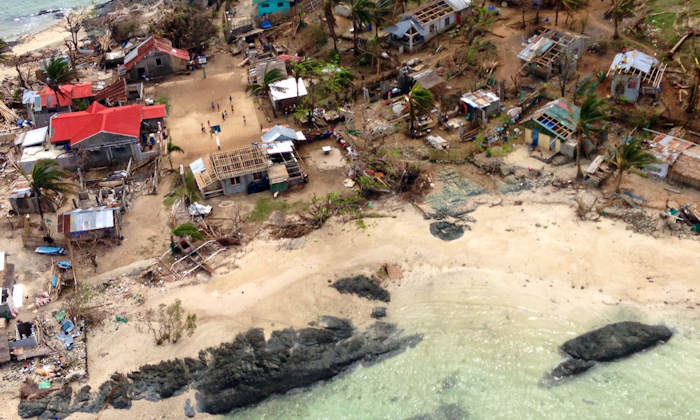Saving lives amidst disaster
31 Aug 2016
A moving behind the scenes look at our international humanitarian medical relief work

Professor Tony Redmond OBE recalls providing medical support in the aftermath of a humanitarian crisis for the first time, back in 1988 – attending an earthquake in Armenia which killed 25,000 people and then, straight after, the Lockerbie bombing.
“I thought: I will either never do this again or it will have to become my life’s work.”
Luckily, he chose the latter and is now the Director of UK-Med, which trains and provides health workers to disasters and is staffed by academics from the University’s Humanitarian and Conflict Response Institute (HCRI). He is also deputy director of HCRI, where the charity is based
This year UK-Med won an £8million grant from government to become the UK’s deployment lead to global humanitarian crises, and cemented the University’s status as a centre for expertise in this area.
Tony recalls the impact of those first experiences: “In Armenia I’d never seen so much death, with coffins piled up on street corners; destruction on such a large scale; to see thousands upon thousands of injured people with severe crush injuries; having to work in such difficult circumstances.
“There was no electricity and, in the dark, I remember falling into a crushed car where the driver was dead at the wheel. It was truly life-changing.”
His personal mission has now extended to the education and training of others as well as the responsibility of a crucial and strategic co-ordinating position in UK disaster response.
The charity has responded to humanitarian crises all over the world including deploying medics to the Philippines post Typhoon Haiyan, to the Gaza conflict , the Ebola crisis in West Africa and most recently to Nepal in response to last April's devastating earthquake.
It also supports, educates and trains health care workers on the UK International Emergency Trauma Register and the new UK International Emergency Medical Register.
These national registers, the first of which was set up by UK-Med in 2011, have registered and trained hundreds of volunteers, ensuring the right mix of skills, training and experience to deploy within 12 to 24 hours of a global disaster.
The ability to anticipate how to deliver emergency aid to the highest standard is at the heart of UK-Med’s modus operandi.
Professor Redmond, a consultant in trauma and emergency medicine and a Professor of International Emergency Medicine, explains: “A multi-disciplinary clinical team is always on standby, working on two-monthly on call cycles. Before being deployed, each team member must be available, released by their employer and appropriately trained.”
Karen Livingstone is one of those deployees – a UK-Med medical advisor who completed her nursing degree and MA in Humanitarian and Conflict Response at Manchester. Whilst working as a nurse, she was deployed to the Philippines to help people whose homes and communities were destroyed or severely damaged by Typhoon Haiyan.
“Whilst working on the Islands, I treated people who had wounds from flying debris, injured limbs, broken bones and dehydration,” she explains.
“A lasting impression is the resilience of those people. People’s belongings were washed from their homes by the sea and the water sources were contaminated but they were determined to get back on their feet. They explained their needs and welcomed our help and support.”
Tony, who would sleep fully clothed with a grab bag, head lamp and hand torch by his bed, ready to make a run for it, adds: “The constant, low grade, unremitting anxiety of a conflict zone is very wearing and at times worse than a sudden stressful event such as being held at checkpoint or even shot at.
“But you can’t yourself become a victim – you have to be able to help people, otherwise you are just adding to the problem.
“Being properly trained and equipped makes you better prepared and more resilient, allowing you to start work quickly and help people get their lives back together, sometimes, literally, by providing life-saving or limb-saving surgery or by getting a health service going again.”
The work of UK-Med is underpinned by HCRI’s research which aims to understand and evaluate the quality of aid provided during humanitarian disasters. The Institute is one of the very few World Health Organization Collaborating Centres tasked with global research on how to improve the effectiveness of international emergency medical teams in a disaster and to develop training to help local teams and doctors improve their response to disasters.
Tony says: “The need for emergency humanitarian assistance has never been greater and the demands from the public and politicians to spend limited resources effectively have never been louder. The research and teaching carried out by HCRI, in support of the work of UK-Med, helps us ensure that those in the greatest of need get the best of help.”
